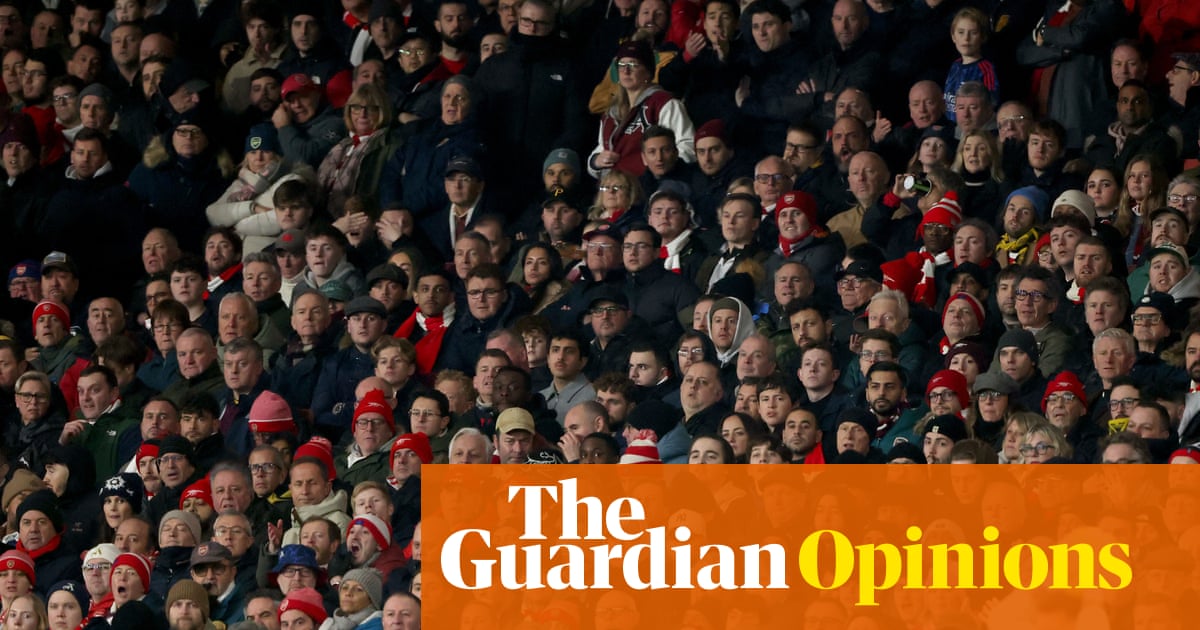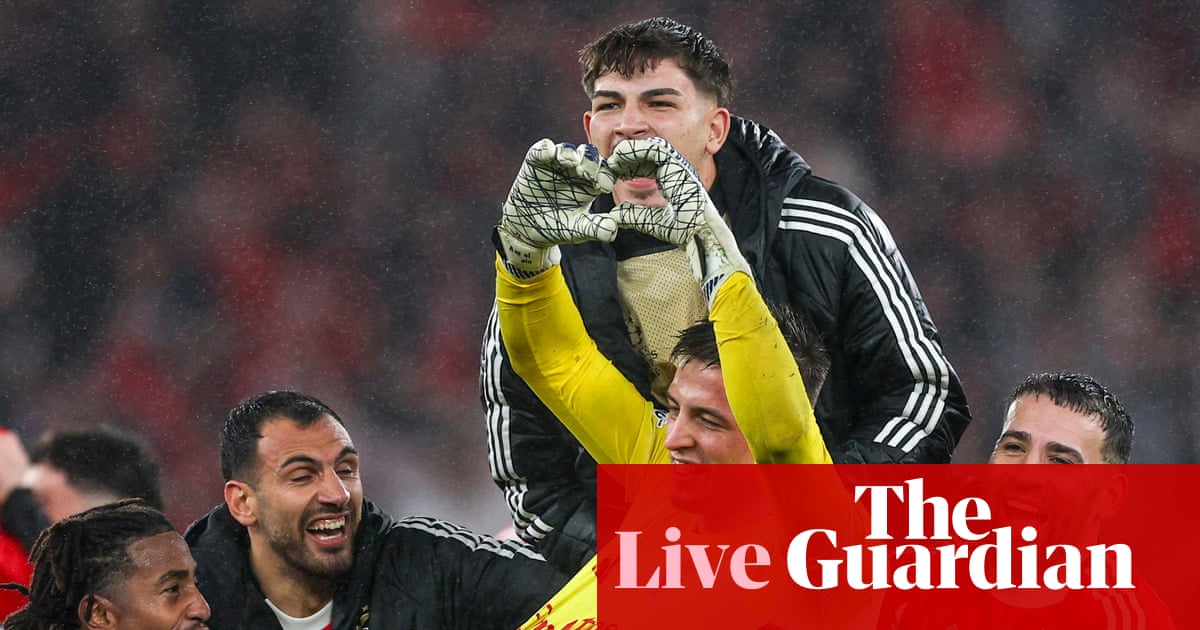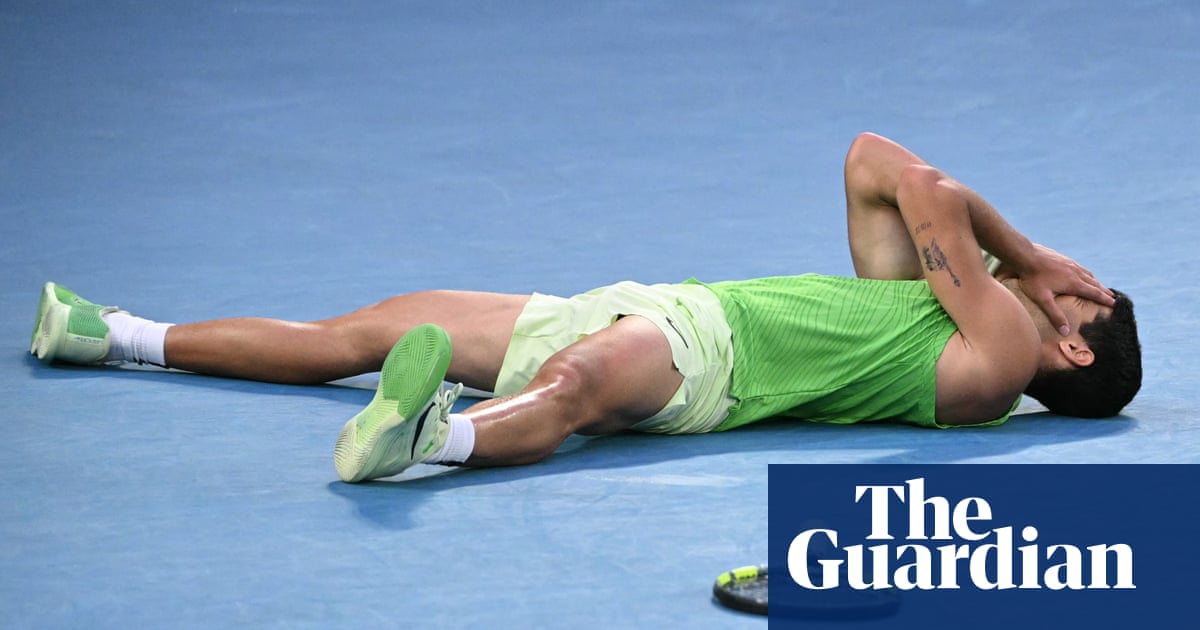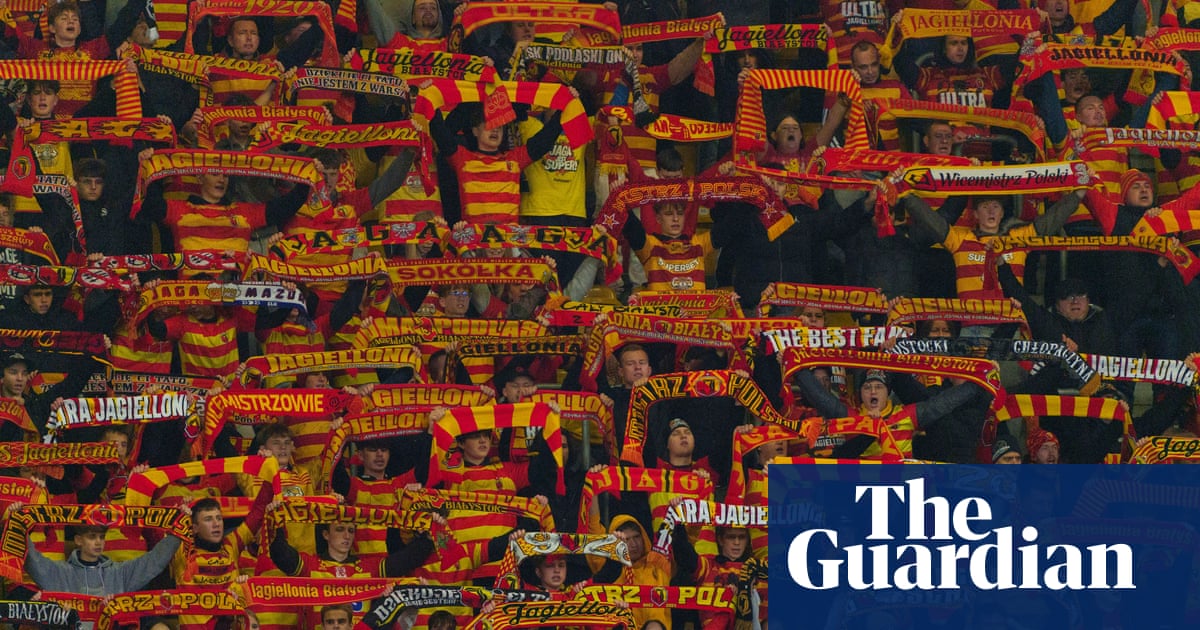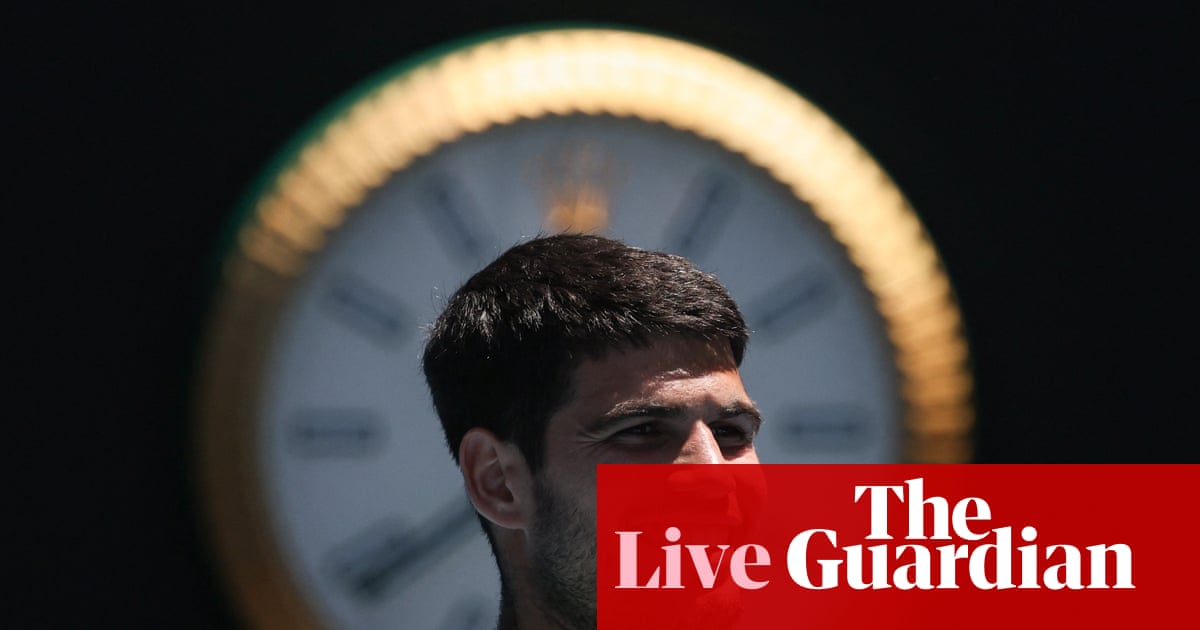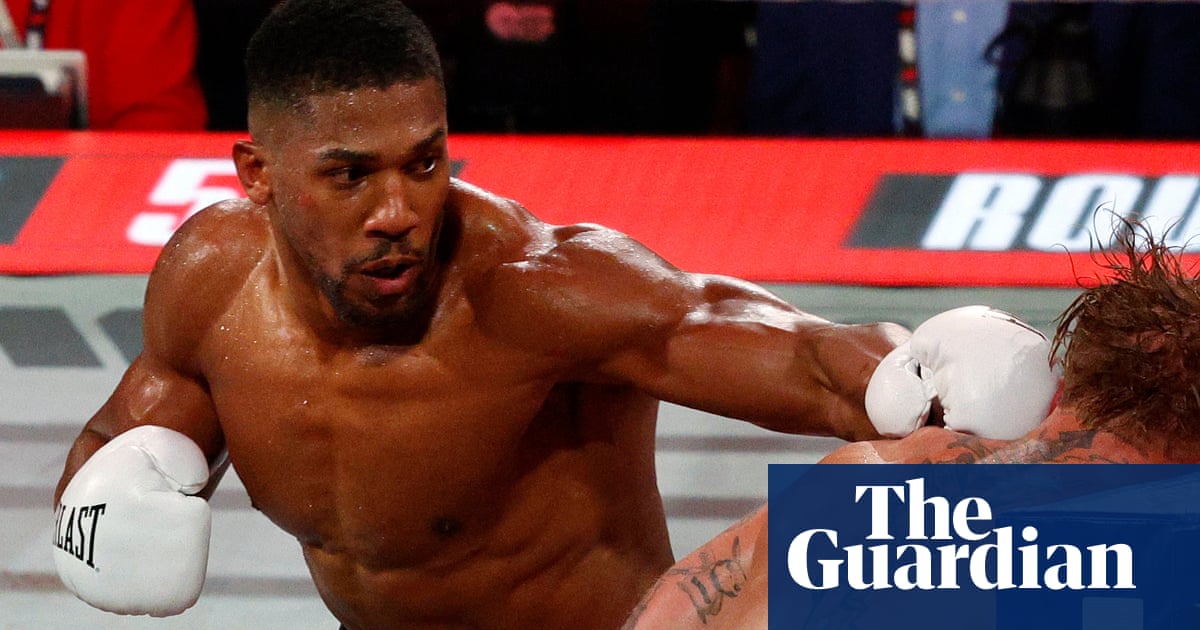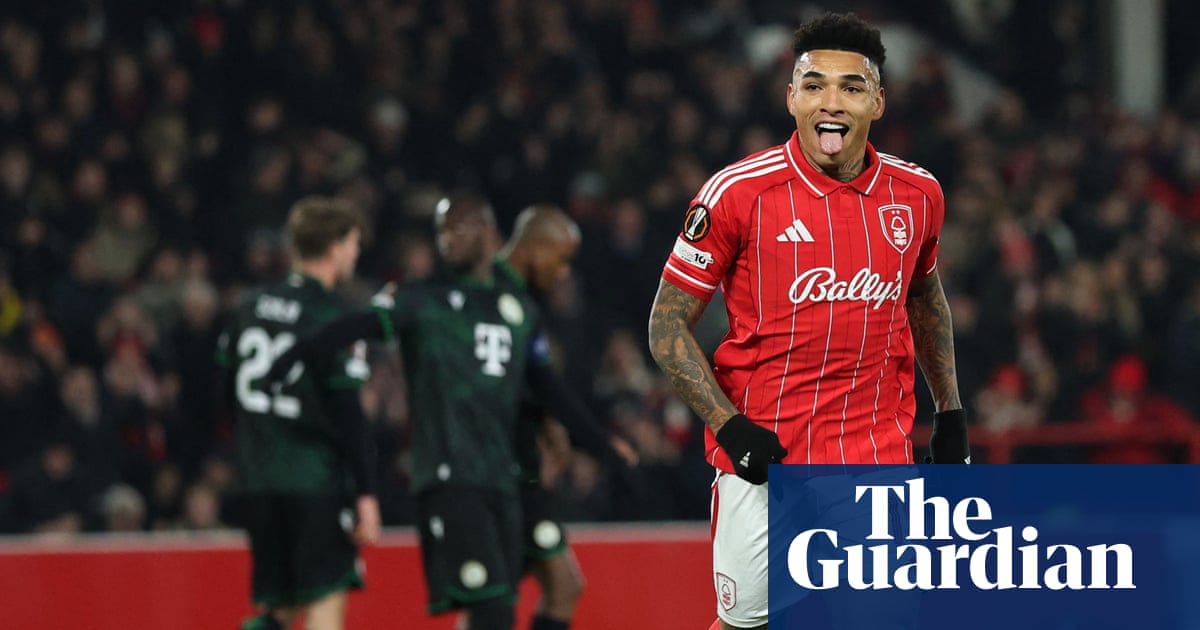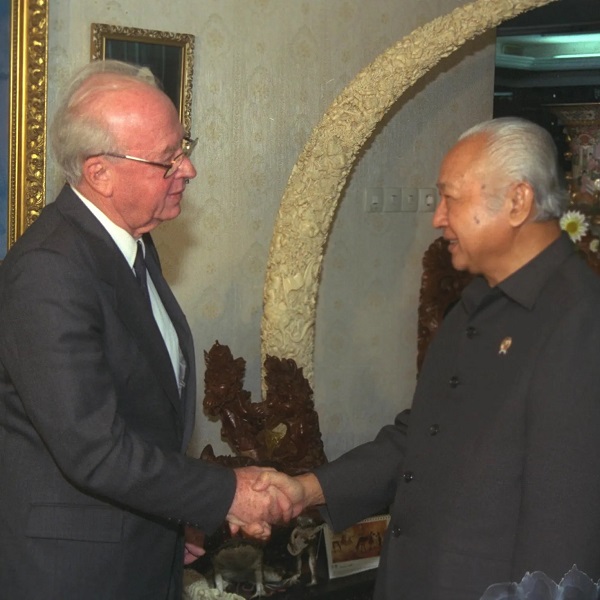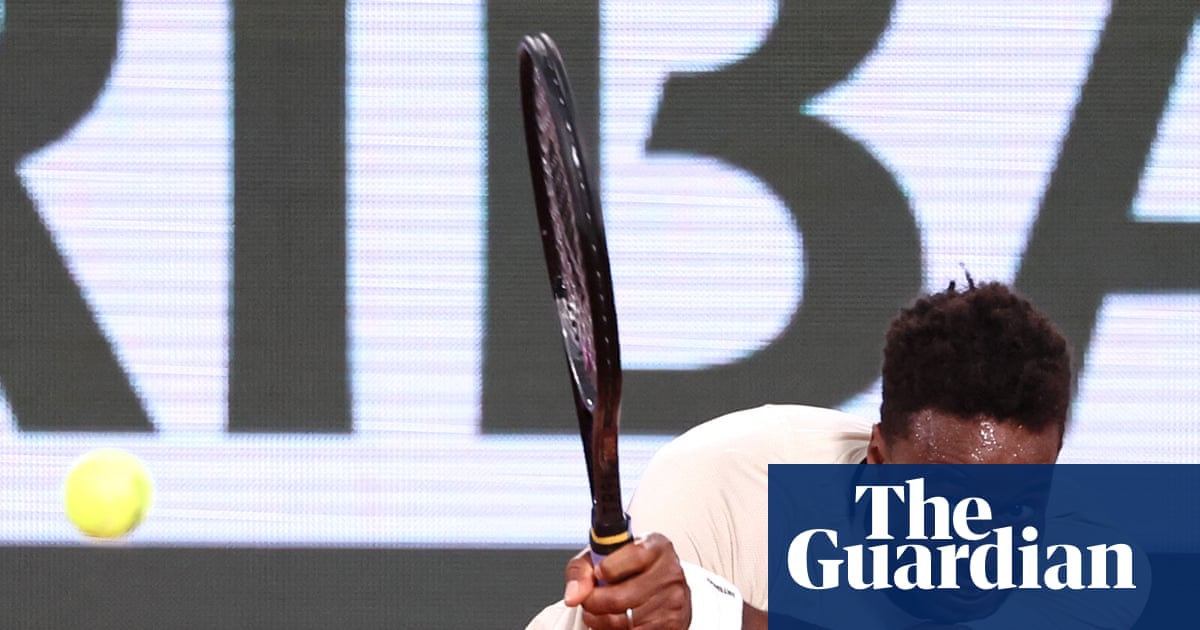Watching Micky van de Ven surge through the pretty much the entire FC Copenhagen team in the Champions League last week, two sensations occurred. The first was awe, that somebody so powerful and so quick would still have the composure to finish as he did. And the second was that this didn’t feel entirely fair. It was as though Gulliver had landed himself a deal in the Lilliput Premier League.
The same evening, Liverpool, who have at times struggled physically in the Premier League this season, bullied Real Madrid, their threat at set plays so marked that eventually it was the 5ft 7in Alexis Mac Allister who headed the vital goal. The following day, Newcastle swatted Athletic Bilbao aside, largely by being bigger than them: for the opening goal, the Spanish side’s defence appears to have looked at Dan Burn and decided there was no point even trying to mark him.
The Premier League has had a physical advantage over most of the rest of the world for years, but it is particularly pronounced now. If the elite level of the game really is turning en masse towards a more direct style, focused increasingly on set plays, English football is leading the charge – and it is a charge towards a way of playing with which it is extremely culturally familiar. To watch Arsenal against Crystal Palace followed by Real Madrid against Barcelona at the end of last month was to witness two extremely different versions of the same sport.
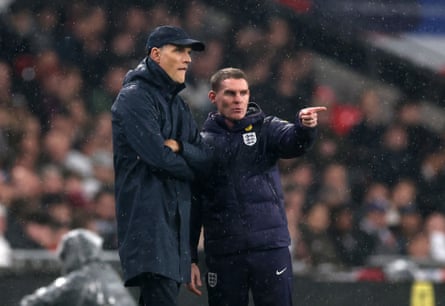
Which perhaps explains why when Thomas Tuchel took the England job he talked of high-tempo, high-octane football. But we’ve heard that before; it tends not to work, partly because most international tournaments are played in high heat and partly because the limited time available to international managers necessitates simplification. Playing football that is both rapid and coherent takes hours of work on the training pitch. International teams can be one or the other but it’s very hard for them to be both at once, at least not for protracted periods.
That’s also why sui generis players are rarely as effective for their national sides as they are for their clubs. A club can spend time finding ways of maximising the strengths and compensate for the weaknesses of a player with an unusual set of attributes – as Liverpool have done over the past decade with Trent Alexander-Arnold and Mohamed Salah, or Manchester City with Phil Foden.
A national team cannot – and that’s the main reason none of those three players, for all their obvious qualities, have been as effective in international football as they have been domestically. Whether a maturing Foden playing in a City side that is far less esoteric than its immediate predecessors can find a role with England will be one of the major questions for Tuchel between now and the World Cup next summer.
As Tuchel has settled and performances have improved, so the rhetoric has changed. His assistant, Anthony Barry, last week spoke of a “heat-proof game model”, and crucially that did not seem to mean just playing slower. Whereas England have in the past attempted a patient possession game alien to most of the players, essentially trying to take on teams more familiar with possession football at their own game, Barry spoke of implementing “a style that allows them to move and run like they do every week, that resonates with them and allows them to take the handbrake off. They must be stuck less in thinking and more in doing.” The aim is to take advantage of the “athleticism, the versatility, the physicality, the honesty” of the Premier League.
Which makes complete sense, but does perhaps demand the question: why hasn’t this worked before? To which there are probably three answers.
First, that Premier League referees are – or are at least perceived to be – less likely to penalise physicality, which leads to players playing within themselves. Second, that the physical nature of the Premier League makes it exhausting. The energy and percussiveness that makes Premier League sides so combative early in the season can leave them exhausted by its end – which probably also helps explain the underperformance, relative to their extreme wealth, in the Champions League.

But the third reason is perhaps the most intriguing, which is that English football has not previously had a period like that of the past 15 years in which passing out from the back, seeing the game as being one of possession rather than territory, has been the default.
And that, along with the advances in youth development embodied in the elite player performance plan and the England DNA project, means this is probably the most tactically and technically sophisticated cohort of English players there has ever been.
after newsletter promotion
They know how to hold possession – albeit that ability has deserted them in certain critical moments of key games in recent years – and have the historical capacity, honed over this season, to attack with fire and fury. Blending the two, particularly in the furnace of the North American summer, could be an extremely potent weapon. They will be playing direct football with experience of a possession-driven world.
There is even a precedent, albeit one that was never really built on. Before the 2018 World Cup, Gareth Southgate, England’s then manager, decided that dead balls offered the most bang for training-ground buck, a relatively limited amount of practice could yield significant impact on the pitch. The result was an England team that terrified opponents from corners and unexpected passage to the semi-finals.
It was never entirely clear why the policy was less effective thereafter – a sense that an emerging England were better than that? Opponents working out counter-strategies? – but the presence of the Aston Villa set-piece guru Austin MacPhee among the Portugal coaching staff is evidence that other countries have realised how important dead balls might be.
But that’s where England have a huge advantage: they have, in Declan Rice and Bukayo Saka, the two best dead-ball deliverers from the best side at dead balls in the best league at dead balls. And if it takes them 90 seconds to deliver each one, that’s just more time to recover.
The traditional England strength that has so often been a tournament weakness might next summer be an actual strength again.
.png)
 2 months ago
29
2 months ago
29


